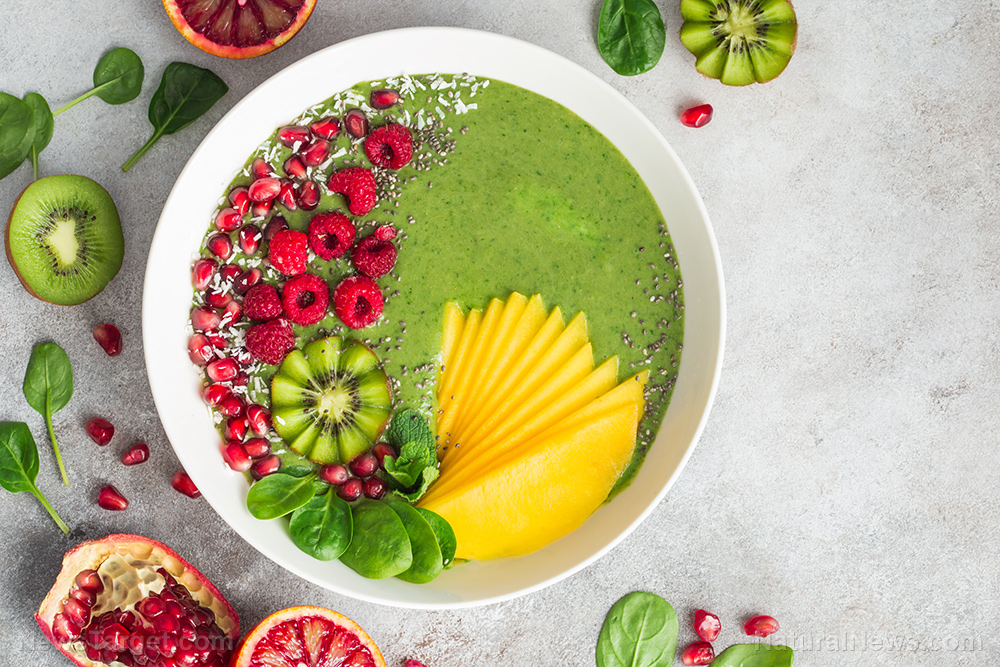Happier and healthier: Curcumin-rich turmeric can help ease depression and anxiety, researchers find
03/11/2019 / By Isabelle Z.

Arthritis, diabetes, cancer, inflammation… the list of conditions that curcumin can help with is pretty impressive, with many common physical ailments benefiting to some degree from the compound found in turmeric. However, curcumin really puts the “super” in “superfood” by not just enhancing physical health but mental health as well – and we can now add addressing all-too-common conditions like depression and anxiety to its list of accomplishments.
A recent study carried out by Australian researchers provides the latest evidence showing how curcumin can treat symptoms of depression and anxiety. The placebo-controlled, double-blind study involved giving 123 participants who had major depressive disorder either a placebo, a high dose of curcumin, a low dose of curcumin, or a combination of saffron and a low dose of curcumin.
After 12 weeks of observation, the researchers revealed that curcumin extracts effectively reduced people’s anxiety and depression. While it made significant improvements in both conditions, it excelled at treating depression. Both doses used in the study – 500 and 250 milligrams of curcumin extract twice per day – were found to be effective, but the addition of saffron did not appear to have any effect.
How does curcumin help with depression?
The researchers believe curcumin has this effect because it elevates the neurotransmitters that help keep your mood stable. Curcumin regulates levels of dopamine and serotonin in the brain, and it also decreases the markers of neuroinflammation, which is significant when you consider that inflammation contributes to mood disorders. It does this by reducing the expression of inflammatory cytokines; it can also reduce levels of the “stress hormone,” cortisol. Curcumin is believed to have the potential to fix disturbances in the HPA axis, which can have a negative impact on sleep and mood.
The notion of curcumin being able to treat anxiety and depression could spare countless people the very negative side effects of antidepressants, which include weight gain, migraines, sexual dysfunction, drowsiness and suicidal behavior. However, for those who still feel the need to take such medications, it can enhance their efficacy and potentially reduce the amount that needs to be taken. In a 2015 study published in the Journal of Clinical Psychopharmacology, for example, researchers noted that 2,000 mg per day of curcumin made pharmaceutical antidepressants more effective without bringing on side effects.
When you take curcumin for depression or anxiety, you’re also getting physical benefits at the same time. For example, curcumin can help those with type 2 diabetes and even prevent those with pre-diabetes from developing the disease. It can also help to lower cholesterol and triglycerides, enhancing heart health, in addition to its anti-inflammatory properties.
It’s important to note that curcumin tends to be poorly absorbed by the body, so you might not be getting as much of it as you’d like when you consume the spice on its own. Some supplements have black pepper in them because its active ingredient, piperine, can raise the bioavailability of curcumin dramatically; adding a pinch of pepper when you’re cooking with turmeric has a similar effect.
One out every six Americans is now taking an antidepressant or other psychiatric drug on a regular basis, putting themselves at a great risk of side effects. Worst of all, it may all be in vain as studies have shown that many of these drugs are simply not effective. That’s why it’s very encouraging to see a natural, safe remedy like turmeric demonstrating its effectiveness at fighting this common problem.
Sources for this article include:
Tagged Under: Antidepressants, Anxiety, curcumin, depression, food cures, grocery cures, Herbs, mental health, mind body science, moods, natural cures, natural medicine, natural remedies, prevention, remedies, research, Spices, turmeric


















